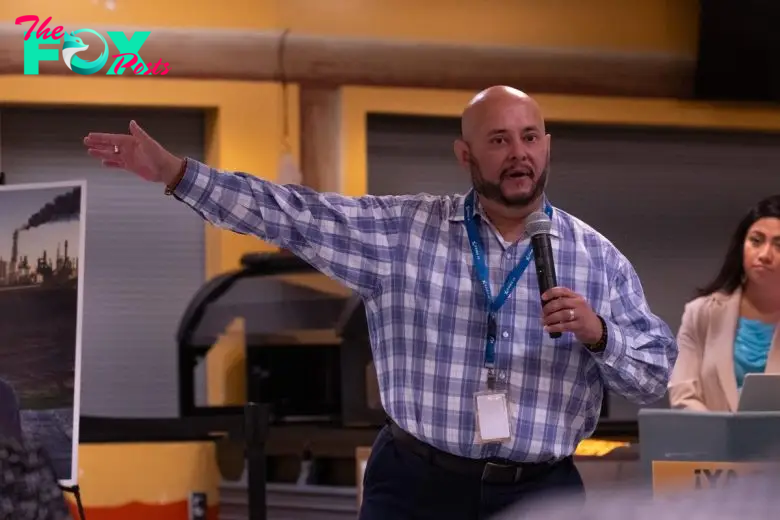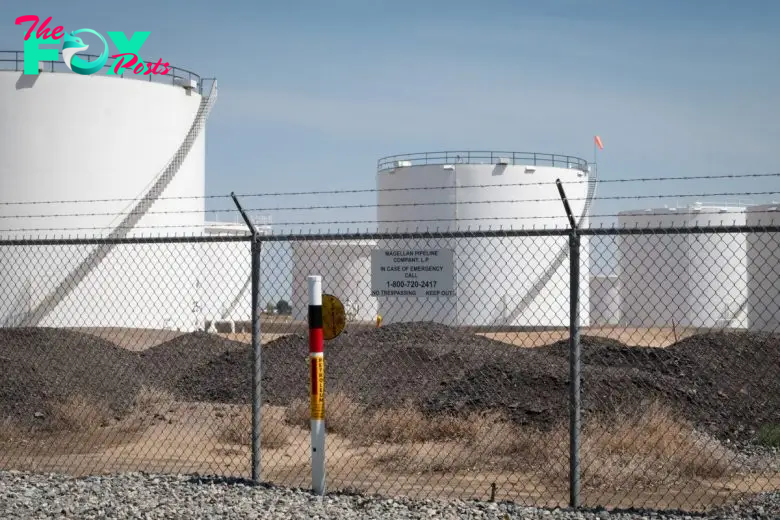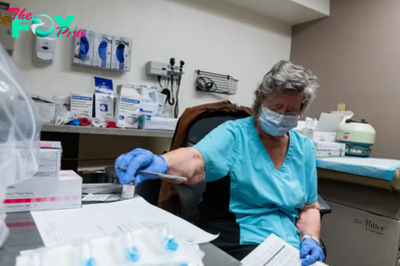Health
Commerce City neighbors fighting plans to store more gasoline across the street from a school
Commerce City residents and activists want the state’s Health department to deny a permit to expand a gasoline storage facility across the street from Dupont Elementary, but they face an uphill battle, with Gov. Jared Polis viewing the plan as a way to keep down the cost of a fuel type designed to reduce pollution along the Front Range.
Community members from all around Commerce City gathered Sept. 7 at a forum hosted by grassroots organization Cultivando and the Adams 14 School District to discuss health concerns, environmental injustice and the lack of communication regarding the proposal by the Magellan Pipeline Company. Opponents to the plan say its expansion would increase pollutants harmful to the health of the school and the wider Front Range community.
“What I’m hoping comes of this forum is that the community walks away with a sense of understanding of this issue and the energy and motivation to do what they can to ensure this permit is not approved,” said Gualalupe Solís, director of Cultivando’s environmental justice programs.
The Magellan pipeline terminal across from Dupont Elementary currently has 20 storage tanks. The expansion proposes an additional five tanks. Petroleum handling facilities release volatile organic compounds, including benzene and other hazardous chemicals, into surrounding neighborhoods, and adding a significant number of tanks, pipes and valves will increase emissions, according to permit applications.
Concerns expressed during the forum focused particularly on benzene, which can cause cancer and low birth weights.
Cultivando manager of environmental justice programs Laura Martinez said the area around Dupont Elementary already has consistently higher levels of benzene, even for Commerce City.
“Adding five more tanks and the contamination is going to be elevated and more dangerous for our communities,” Martinez said.
Some of the people who attended the meeting said they did not know all the details of the storage expansion, only that it involved more oil and gas operations in Adams County. Others were more informed and staunchly against expansion of Magellan’s Dupont Terminal. The majority of the presentations were in Spanish, with a few speakers presenting in English. Receivers for live translation in either language were available to attendees.
Solís said Cultivando’s air monitoring efforts increased public awareness and stirred momentum. “We’re here to inform our community. No one else is going to do it. We know Magellan didn’t, we know that the (state air pollution division) didn’t. And so our role is to inform the community, make sure their voices are heard.”

Joe Salazar, chief legal counsel for Adams 14, is drafting a public comment with Cultivando and the Center for Biological Diversity, slated for submission to the air pollution control division by Sept. 16.
“This is a continuation of over a century of environmental racism and Commerce City has always been the target,” he said.
Salazar said the school district is heavily involved in pushing back against the permit. “This is about who occupies that school across the street (from the terminal), our families who come to our schools, hoping that they have kids who go to school and breathe clean air.”
“The cake is baked,” he added, because the expansion received preliminary approval without any public input. “So we’re here to fight to make them change their minds.”
Should the permit be fully approved, Salazar said he will take the issue to court.

The promise of reformulated gasoline
Colorado officials may be in a bind when reviewing the permit for the Magellan Dupont terminal expansion. The tanks will hold more reformulated gasoline than the site could handle for the 2024 season, and thereby help meet other environmental goals of the Polis administration.
Colorado’s northern Front Range counties must use the less volatile gasoline in summer to help bring the state’s ozone-causing emissions in line with EPA limits. Reformulated gas, according to the EPA, can cut back on ozone-causing emissions because it’s denser and doesn’t evaporate as quickly in hot weather.
The Polis administration warned earlier this year consumers could pay up to 50 cents more a gallon for reformulated gasoline because the market is dominated by Suncor’s Commerce City refinery. But petroleum trade officials and even the EPA said companies like Magellan did a good job increasing competition this spring by piping in alternative supplies ahead of the June 1 launch of reformulated gasoline.
The EPA has welcomed that competition. Magellan, now owned by ONEOK, has said the new tanks would help guarantee a diverse supply for the Front Range.
Magellan’s early action to pipe in reformulated gas last spring saved Front Range residents, including those in Adams County, 15 to 20 cents a gallon by boosting competitive pricing, said Grier Bailey, director of the Colorado Wyoming Petroleum Marketers Association. Still, Bailey said, gasoline companies are aware that 9 out of 10 gallons of Front Range gas is delivered from Adams County facilities like Magellan and Suncor.
-

 Health6h ago
Health6h agoTeens Are Stuck on Their Screens. Here’s How to Protect Them
-

 Health12h ago
Health12h agoHow Pulmonary Rehab Can Help Improve Asthma Symptoms
-

 Health12h ago
Health12h ago10 Things to Say When Someone Asks Why You’re Still Single
-

 Health1d ago
Health1d agoThe Surprising Benefits of Talking Out Loud to Yourself
-

 Health1d ago
Health1d agoDoctor’s bills often come with sticker shock for patients − but health insurance could be reinvented to provide costs upfront
-

 Health2d ago
Health2d agoWhat an HPV Diagnosis Really Means
-

 Health2d ago
Health2d agoThere’s an E. Coli Outbreak in Organic Carrots
-

 Health3d ago
Health3d agoCOVID-19’s Surprising Effect on Cancer



























